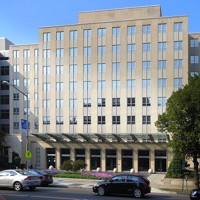Think tank analyst is one of those jobs that can be hard to explain to friends and relatives. Taken together, Washington’s many international affairs institutes could be described as the American foreign policy “industry.” This industry is sustained by a branch of American philanthropy that takes a keen interest in how the United States carries out its special global role. And the role of the analysts who work in this industry is to scrutinize the myriad official actions of the world’s governments, with an eye not only to explaining them, but to influencing them as well.
As a matter of course, officials and the outside specialists shadowing them regularly discuss policy problems with each other, whether face to face or in writing. Given the basic mission of think tanks to affect policy, these direct channels to convey advice might seem like the very essence of the experts’ work: telling officials precisely what they should do -- and sometimes seeing them actually do it.
But the image of an expert trying to close a “sale” of ready-to-implement recommendations glosses over the varied ways that analysts contribute to debates over policy and simplifies the intricacy of the debates themselves. In fact, the familiar archetypal image of a policy deliberation -- the meeting where decision-makers choose from among the options at hand -- represents just a sliver of the process. Step back from the agenda of that meeting and you will probably see related questions of broader policy approach, overarching strategy, the frame and terms of debate, domestic political sensitivity and implementation challenges.

